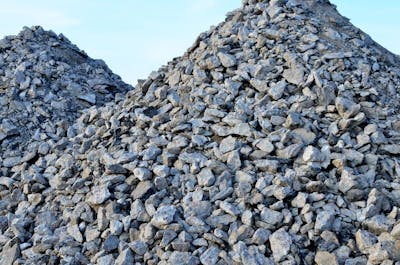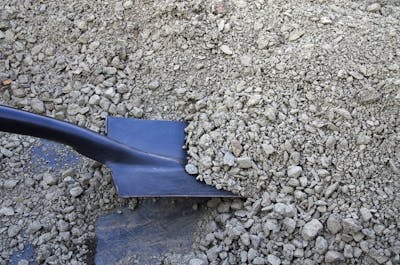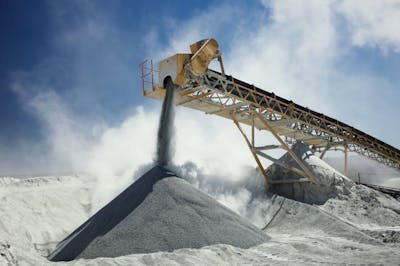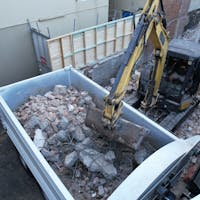Find the Best Quarry Product Suppliers Near You
- Post a job
- Receive multiple quotes
- Choose your preferred Quarry Product suppliers
Where do you need Quarry Products?
Describe your job and our suppliers will send you quotes
Popular Quarry Products Locations
Types of Quarry Products Available

Landscaping Supplies

Concrete Recycling

Crushed Rock

Top Soil
4,149 Quarry Supply Companies on iseekplant
At iseekplant, we're proud to offer access to over 4,149 reputable quarry supply companies from our vast network spanning across Australia. Whether you're looking for high-grade crushed rock, washed sand, top soil, gypsum or other niche products, these suppliers ensure consistent quality and reliable delivery.
Every project has unique requirements, and our platform streamlines the process of finding the ideal supplier to match your project's specifications and budget. With such an extensive database, you're guaranteed to find a solution tailored to your requirements.
In this guide, we'll look at quarry products on our platform, standard market rates, how the quarry industry works and the process of delivering and removing materials from your site.
Quarry Products Rates Guide
Understanding the cost of quarry products is essential when budgeting for construction or landscaping projects. The type of product, its grade, quarry location and current market trends can influence the price.
We've compiled a list of common quarry products and their average prices per tonne below based on historical data and prevailing industry trends.
| Quarry Product | Average Price (per tonne) |
|---|---|
| Crushed Rock | $20 - $30 |
| Sand | $40 - $60 |
| Gravel | $25 - $40 |
| Aggregates | $15 - $35 |
| River Stone | $50 - $70 |
| Soil | $10 - $25 |
| Crushed Limestone | $35 - $55 |
| Road Base | $18 - $28 |
| Decorative Pebbles | $55 - $90 |
| Blue Metal (10mm) | $70 - $85 |
Note: All prices listed on this page are estimates, exclude GST and are in AUD.
This table should offer a baseline, but it's always recommended to get a direct quote for the most accurate pricing tailored to your project's specifics. Consult with our suppliers directly using our Get a Quote tool for the most current rates and get a customised quote.
Additional Costs to Consider
When budgeting for quarry products, the price per tonne isn't the only factor in the total cost. There are often overlooked expenses, such as delivery, handling and specific project requirements, which can add to your overall expenditure.
It's essential to account for these additional costs to ensure you remain within your project budget:
| Additional Costs | Estimated Cost |
|---|---|
| Delivery Charges (Distance-based) | $50 - $300+ |
| Specialised Handling or Processing | $10 - $50 per tonne |
| Environmental or Council Levies | Varies by region |
| Import/Export Taxes (if applicable) | Varies by product |
| Oversize Load Permits | $100 - $500+ |
| Site Preparation (if required) | $200 - $2,000+ |
| Rush Orders or After-hours Delivery | $50 - $200 extra |
| Product Testing or Certification | $100 - $500 per test |
Take note these estimates can change based on specific project details, location and the current market conditions. Always work with your suppliers to obtain an accurate cost breakdown for your project.
Types of Quarry Products on iseekplant
Quarry products cater to a broad category of construction and landscaping needs. With an expansive range on iseekplant, understanding each type's primary use can guide project managers and contractors to the most suitable choice.
The list below highlights the top quarry products on our platform:
- Crushed Rock: Typically used as a base layer for roads, the coarse nature of crushed rock helps with drainage and strength.
- Washed Sand: Washed sand is sand that's washed to remove dirt and silt, making it ideal for concrete mixing and masonry.
- Top Soil: Top soil is a nutrient-rich upper layer of soil often used for gardening and landscaping to promote plant growth.
- Gypsum: A soft mineral, gypsum is common in plaster and as a soil conditioner.
- Road Base: Essential for road construction, road base offers a sturdy foundation for asphalt and concreting.
- Sand Supplies: Sand supplies cater to various applications from buildings to playgrounds. Sand types vary in coarseness and colour.
- Soil Supplies: Soil supplies range from organic-rich garden topsoils to clayey soils for construction projects.
- Aggregate Supplies: Essential for concrete production, aggregates include various sizes of sand, gravel and crushed stone.
- Crushed Concrete: Repurposed concrete crushed into smaller parts; it's a sustainable alternative for road bases and other applications.
- Drainage Gravel: Specifically designed to facilitate water drainage, drainage gravel is often used around pipes or in ditches.
- Crushed Limestone: A versatile product, crushed limestone is used in projects from road bases to enhancing garden soils.
- Landscaping Supplies: Landscaping supplies is a broad term that includes decorative stones, mulches and other garden and landscape beautification products.
Here’s a table detailing these products and a few more details you might want to know:
| Product Name | Practical Application | Texture & Composition | Average Price/Tonne | Common Sizes/Grades |
|---|---|---|---|---|
| Crushed Rock | Ideal for road construction and as a base layer for asphalt | Coarse, angular fragments | $50-$70 | 5mm, 10mm, 20mm |
| Washed Sand | Used in concrete mixing and landscaping for top dressing | Fine-grained, free from impurities | $60-$80 | Fine |
| Top Soil | Best for gardens, lawns and landscaping projects | Rich organic material | $30-$50 | N/A |
| Gypsum | Soil conditioner and for use in plasterboard | Soft mineral, powdery | $40-$60 | N/A |
| Road Base | Foundation material for roadways and paths | Blend of rocks, finer gravel and sand | $45-$65 | 20mm, 40mm |
| Sand Supplies | General construction and landscaping | Fine to medium grain | $50-$70 | Fine, Medium, Coarse |
| Soil Supplies | Ideal for landscaping and garden beds | Varies: loam, clay, silt | $25-$45 | N/A |
| Aggregate Supplies | Used in concrete mixes, drainage and road construction | Mixture of sand, gravel, crushed stone | $55-$75 | 10mm, 20mm |
| Crushed Concrete | Sub-base layers and driveways; more sustainable than gravel | Recycled concrete, various sizes | $40-$60 | 5mm, 20mm |
| Drainage Gravel | Used for improving drainage in gardens and driveways | Rounded or angular, often porous | $50-$70 | 10mm, 20mm, 40mm |
| Crushed Limestone | Road base, under slab fill, driveways | Fine to medium grain, white-grey | $55-$75 | 10mm, 20mm |
| Landscaping Supplies | Varied use, depending on specific type; general landscaping | Wide range: from stones to mulch | Varies | Varies |
The prices in this table are average estimations and might fluctuate based on region, supplier and current market conditions. Always consult directly with our suppliers for the most accurate rates.
How the Quarry Industry Works
The quarry industry is the backbone of many construction and infrastructure sectors, providing the necessary raw materials for numerous projects. Understanding the quarrying process is essential with Australia's regulations and the ever-increasing demand for high-quality building materials.
This section provides an overview of the process and regulations to help you through each step of the process:
Site Selection
Quarries are strategically placed based on the availability of specific rock types and their proximity to construction projects. Adherence to Australia's Environment Protection and Biodiversity Conservation Act 1999 ensures that environmental assessments and approvals are in place for new quarrying operations.
Extraction Process
Once the site is decided, extraction begins. Extraction involves carefully mining raw materials while abiding by guidelines set in The Mining Act 1992 and The Mining Regulation 2016 to ensure minimal environmental impact.
Quality Control
After extraction, materials are subject to rigorous quality testing. Standards like Australian Standard AS 2758.0 detail the general requirements for the supply of aggregates and rock, ensuring every batch meets specific criteria.
Transportation
Once processed, materials are then transported to various sites, typically by heavy trucks. The Heavy Vehicle National Law (HVNL) governs their movement, ensuring the safe and efficient transportation of heavy loads, including quarried materials.
Charging Model
The pricing for quarry materials typically depends on the volume or weight. Consumer protection laws within the country ensure transparency in pricing and that the quarrying industry remains free from unfair business practices.
Rehabilitation
Every quarry has a life cycle. Once extraction is complete, sites often undergo rehabilitation to restore the environment. The Department of Industry’s Leading Practice Sustainable Development Program for the Mining Industry provides clear guidelines on this rehabilitation process.
Delivering and Removing Materials from Your Site
When working with quarry materials, both the delivery and removal processes are crucial in maintaining the flow of your project. Efficient delivery ensures your project stays on track. At the same time, effective removal guarantees the site remains tidy and compliant with environmental regulations.
Here are a few tips to help give you an idea of this final step of the process:
Ordering and Scheduling
Begin with placing an order with a trusted quarry supplier. This involves specifying the type and quantity of material required. Ensure a clear schedule is established. This helps in coordinating with other activities on-site.
Safety Protocols
All delivery vehicles should adhere to specific safety protocols. This includes using designated routes, obeying speed limits and securely fastening loads. Proper signage on-site can guide drivers and alert workers, minimising the risk of accidents.
Material Delivery
The delivery trucks transport the ordered materials to your site. Some materials might require special vehicles, especially for bulk orders. Ensure to set a designated area for unloading to ensure safety and efficiency.
Environmental Considerations
The removal of excess or waste materials should be done with the environment in mind. Avoiding spillage and ensuring proper disposal are key. Use sediment control measures if the site is close to water bodies, ensuring no material runoff enters these areas.
Material Removal
Any excess material that isn't needed should be removed from the site promptly. This might include materials like debris, old aggregates or any waste. Coordinate with the quarry supplier or a waste removal company for proper disposal.
Site Preparation Tips
Before material delivery, ensure the site is adequately prepared. This might involve levelling the ground, marking designated areas and ensuring easy access for delivery vehicles. Post-delivery, regular site cleanup and organisation are crucial. This helps maintain a safe work environment and ensures the project's smooth progression.
These steps and tips ensure that receiving and returning materials happens efficiently and safely, keeping your project's momentum uninterrupted.
Ready to Source Quality Quarry Products?
The world of quarry supplies can be a rocky journey. But with iseekplant, it's a smooth ride! We connect you with Australia's leading quarry supply companies, ensuring you get top-notch products tailored to your project needs.
Of course, you'll want to transport your quarry products safely. So we can connect you with dump trucks, tipper trucks, trailers and general transport service suppliers. Remember, for assistance or queries, you can always reach out at projects@iseekplant.com.au or call 1300 691 912. Ready to get your materials? Click 'Get a Quote' to begin.
Become a supplier
Recent Quarry Products reviews
"Very professional team. Did a full warehouse demolition for us, followed by excavation work. It's always a pleasure to work with Paul, he is always an..."
- John CarloView profile"The best in the business!! Professional, prompt and A+ result!! Couldn't recommend enough!!"
- Crystal HoldernessView profileHow It Works
Quarry Product FAQs
Here are some frequently asked questions and tips on finding the right quarry products for your job.
What do we have to offer?
Want to Know More?

Concrete Recycling 101 - Can Concrete be Recycled?
Construction and demolition waste in Australia weighs 15.1 million tonne...

Road base cost guide 2022- Find suppliers | iseekplant
Road base refers to the upper-most layer of rock or gravel in a pavemen...

Crusher Dust Vs Road Base: Which material is best in road construction?
Many products can be used as durable packing materials which create a co...













